Elite Dangerous How to Find Asteroids With Fissures
This post is also available in: Français (French)
I waited a few days before adding this article as it's a copy (almost) of this official thread. I added it to make a link to the French article to this Focused Feedback thread.
Let's have a look at the changes planned about Mining in Beyond Chapter 4.
Everything that will be discussed here may be subject to change, however the Frontier teams are keen to improve the Mining Career to make it more engaging, fun and lucrative. The more investment you put in Mining, the more rewards you will get. New metals and minerals will also be implemented.
▲ Feel free to discuss these changes in the official forums:
- Suggestions
- Problems
- Details Requests
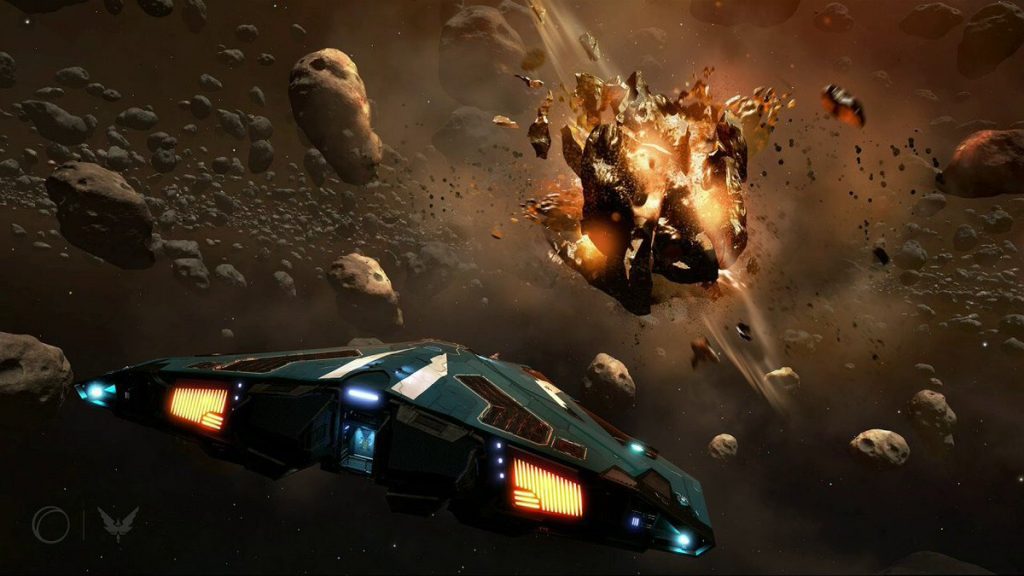
Mining 2.0
This update to mining will cover new ways for miners to interact with asteroids and gain resources from them. It's worth mentioning early that this will be an additive update, we will not be taking away any of the current gameplay for miners. The standard mining laser will maintain its functionality on all asteroids, as will the prospector limpet (although this will also be gaining additional functionality).
New stuff:
- There will be 3 new types of resource "deposits" available to find in rings/belts:
- Surface – dense areas of material on the surface of particular asteroids, needing to be carefully broken off to recover
- Sub-surface – high-yield deposits that sit just below the surface of an asteroid, requiring blasting charges to dig out
- Deep core – an asteroid with a treasure trove of resources at its core, needing to be cracked open to reach
- Each of these will provide increasingly better rewards/materials as a return for the increase in challenge and time
- Each of these will be distributed within asteroid fields at a tiered rarity; surface being the most common, sub-surface being less so and deep core being the hardest to find
- New modules will be available to mine these new deposit types, allowing us to introduce new gameplay based around each
- Discovering and interacting with these deposits will be aided by using a new HUD mode called "Analysis Mode" and a new active scanner
- Finally, the Prospector Limpet will be getting a small update within analysis mode, to help locate and highlight areas of interest on asteroids
The idea is to flesh out the role of the miner allowing room to specialise as well as giving options for the more casual mining participant.
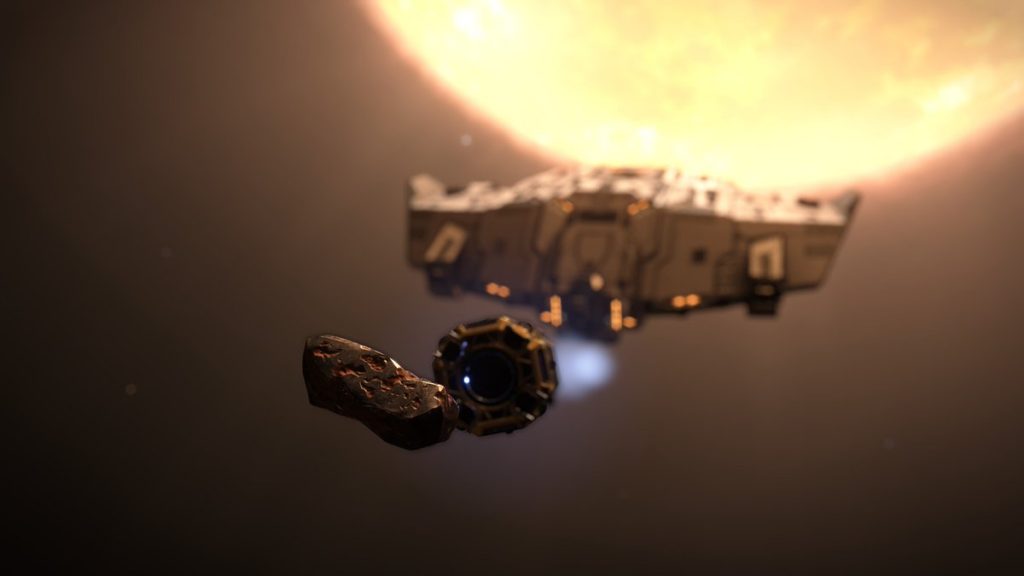
Xmosmos
Hunting Asteroids
To understand the new concepts, we'll run through the flow of finding the asteroids with these new deposit types on. They will not be entirely visible when first entering an asteroid field, especially at range, and in most cases they will require some amount of investigation to locate.
Analysis Mode
The first thing to talk about is Analysis Mode, a new HUD mode allowing players to locate these new deposits, as well as granting access to all the new modules and functionality.
- Every ship will automatically gain this mode, no purchase or module is required to use it
- Quickly switches between modes, so players can quickly adapt to situations as they arise
- Will allow space for new HUD elements and avoid cluttering up the current cockpit HUD
This mode is still somewhat in flux at the moment (it's a big change), so this is just a preview of the idea. Hopefully we'll be able to fill in more details at a later date.
Medium Range Active Scanner
Once in Analysis Mode, the first new mining module is the Medium Range Active Scanner (MRA Scanner). This scanner will allow players to locate deposits within an asteroid field:
- Available in Analysis Mode
- On triggering, it will fire out a scanning pulse from your ship, passing over any asteroids within range
- Any asteroids in range that contain any of the 3 new types of deposit will be highlighted as the pulse passes over it
- The highlights glow size will be defined by the distance from the ship; the further away the larger, more diffuse the glow, the closer the more focused and precise it will become
The MRA Scanner is created with an eye to introducing an amount of interpretive game play. Miners should be able to learn to interpret the information in this view, allowing them to become more effective over time.
Prospector Limpet Changes
Once a deposit has been located, getting more information and targeting data requires a Prospector Limpet to be used. Firing one into an asteroid will do the following:
- Deposits and fissures (more on these later) will become targetable by your ship
- Any deposits will be highlighted and any associated target elements/useful information will become available
- Current prospector functionality will still be available
This is the only way to gain extra knowledge on particular deposit types, more on this later.
Extraction Process
Surface
Surface deposits are dense outcrops of material that are partially visible on the asteroids surface.
These require a new tool in order to crack and collect: the Abrasion Blaster.
- A hardpoint module, usable in Analysis Mode
- When active in a fire group, holding the trigger will charge up the Blaster, releasing the trigger will fire off a shot
- The shots strength will depend on how long the trigger is held for
- Each shot will reduce the health of a deposit by an amount
- If a deposit gets below approximately 10% health, it will break off
- If a shot would push a deposit below 0% health, it will be destroyed and the materials will be lost
- For example, if a deposit has only 11% health remaining, firing a high charged shot into it would have a good chance of destroying it (by overkilling it).
To make this even more interesting, each deposit will have a density value, which affects the damage received per shot:
- A Prospector Limpet can be used to give a general idea of the deposits density, otherwise it will be hidden from players
- The shots strength will be multiplied by this density value, meaning denser deposits will take more power to dislodge, and weaker deposits will break off more easily
- Care should be taken, as certain deposits can easily be destroyed in one shot if the strength is too high
Assuming destruction is avoided, the material will be dislodged and create a single collectible chunk.
- Each chunk will consist of only one material
- They will be a high percentage of that material
- It will require a refinery in order to produce a cargo canister of that resource
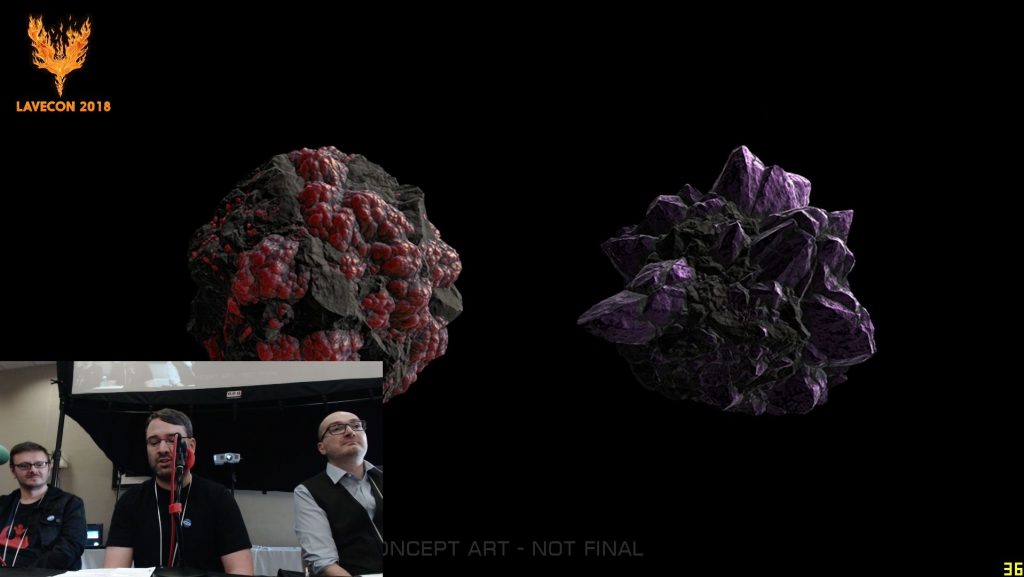
Metals
Sub-surface
Sub-surface deposits are materials hidden below the surface of an asteroid, too deep for the Abrasion Blaster to reach.
In this case, a Sub-surface Displacement Missile is required.
A hardpoint module, usable in Analysis Mode with new HUD elements
- Firing the missile acts similarly to the Flak Launcher, the button is held until a desired distance is reached, then released to detonate the warhead
- It will fly the same as a standard flak round until it hits the surface of an asteroid, once it hits it will do the following:
- Begin to drill into the asteroids surface
- Drill for a set maximum time/to a set maximum depth and then detonate
- If the player releases the trigger whilst it is drilling, the depth will determine what happens next
Hitting the surface of an asteroid, directly over a sub-surface deposit, a new HUD display will appear to help guide the player. As long as the trigger is held, there are 3 possible outcomes in this situation:
- Miss – the detonation hit nothing of use
- Proximity Hit – the detonation was close enough to the deposit to partially dislodge it, a second proximity hit (or direct hit) will dislodge it
- Direct Hit – the detonation was spot on and the deposit will be instantly dislodged
The following is a (very) basic example representation of the new UI:
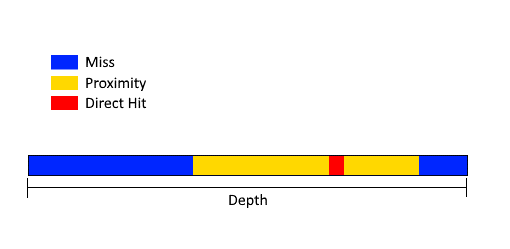
- All sub-surface deposits on an asteroid will have an integrity/health value (we're still investigating the best way to display this information); the lower the value, the lower the amount of its material that will be retrieved when blown out
- Detonations inside of an asteroid will lower the health of all sub-surface deposits in it by an amount
- If they hit 0% health, they will be destroyed and become unrecoverable
- The first chunk blown out will always provide the largest return to players
Successfully dislodging a deposit will shoot out a small number of chunks to be collected. This can be collectible as per surface chunks, but in this case the health value will determine the percentage of the particular material in the chunk, the higher the health, the better the quality of the material that can be collected.
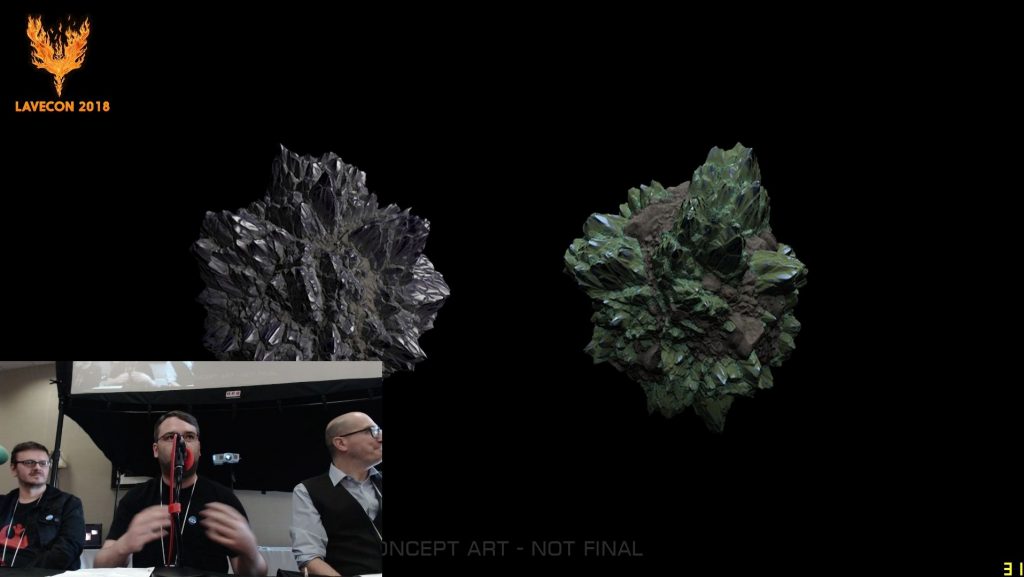
Minerals
Deep Core
The final deposit type is the deep core deposit, this is the rarest and largest form of deposit and is actually more of a cluster of deposits rather than a single instance. It requires players to crack open the asteroid to reach.
To do this, Seismic Charge Warheads are required to break it without destroying the deposit inside.
This asteroid type will look like a normal asteroid:
- It will have fissures on the surface that must be used to crack it open
- Using a Prospector Limpet will make these fissures targetable
Seismic charges need to be fired into fissures and detonated in order to break it open and reach the deposits inside:
- A hardpoint module, usable in Analysis Mode
- Holding the trigger will set the level of charge: low, medium or high
- Releasing the trigger will fire the warhead, as a dumbfire projectile
- When they strike an asteroid, they will embed themselves into the rock
- Once a charge hits an asteroid, it activates and a timer to detonation will begin
- There are failsafe systems on the charges, hitting something triggers the timer & enforces detonation, so highly dangerous mining charges cannot remain active within asteroid fields
- Cockpit warnings will be given to players whenever an active seismic charge is within "danger close" range of their ship
- Hitting a fissure will cause the charge to embed into the rock, missing will cause the charge to bounce off
- Targeting the charge will display the time to detonation
- Any further warheads that are fired into other fissures on the same asteroid will be synched up and detonate at the end of that initial timer
- (TBD) The will be a way to disarm/render charges inert, using the data link
Once the timer reaches zero all charges will detonate, and depending on the charge level set & the quality of the fissure, each warhead will do a set amount of structural damage to the asteroid. All warheads will be added together to create a total, which will determine whether the asteroid will break open.
Fissure quality can be varied and will only appear once a Prospector Limpet is used on the asteroid
- Fissure quality will act as a multiplier to the charge strength of the Seismic Charge fired into it
- WARNING: the detonation of these charges creates a sizeable destruction radius around the asteroid, which will cause heavy damage to any ships caught in the blast
- There will be supporting HUD elements that will warn the player of the risks and the calculated safety distance.
To help players judge how many warheads they require to break open any asteroid, a predictive wave-form HUD will attempt to assess the seismic charges effect on the asteroids structure:
- When the first seismic charge in an asteroid activates, this wave form display will appear
- Each active warhead will push the wave up based on its destructive value (seismic charge x fissure quality)
- The wave will take a small amount of time to settle each time a new charge is set
- The target is to get the wave within the top (approximately) 10% of the graph; below this amount and the asteroid will not crack, above this and the contents will be destroyed
Finally, each of these deep core asteroids will have an integrity value, chosen from a range of values for that particular type of asteroid; Icy, Rocky and Metallic. This will be invisible to players, but will create variety amongst the different types of asteroid in the game.
Not managing to crack open the asteroid will have a negative effect on its integrity, and ruin the fissures used. Details are still to be determined on this, so no more on this just yet.
Once cracked open, inside will be a plethora of collectible chunks & surface deposits that can be gathered up, and will give by far the most materials out of all 3 of the new deposit types.
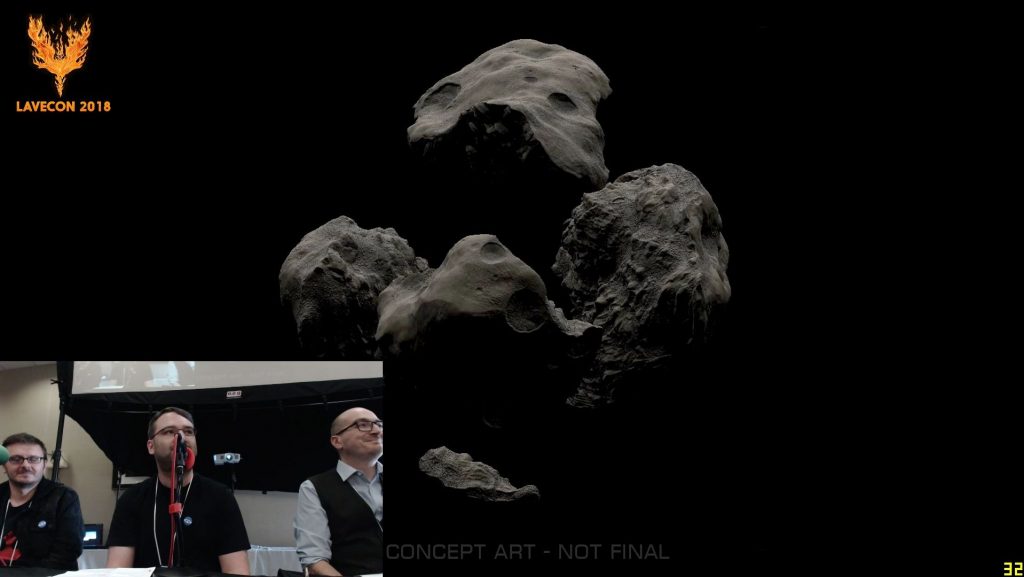
Deep mining
Elite Dangerous How to Find Asteroids With Fissures
Source: http://remlok-industries.fr/beyond-chapter-4-mining-2-0/?lang=en
0 Response to "Elite Dangerous How to Find Asteroids With Fissures"
Post a Comment